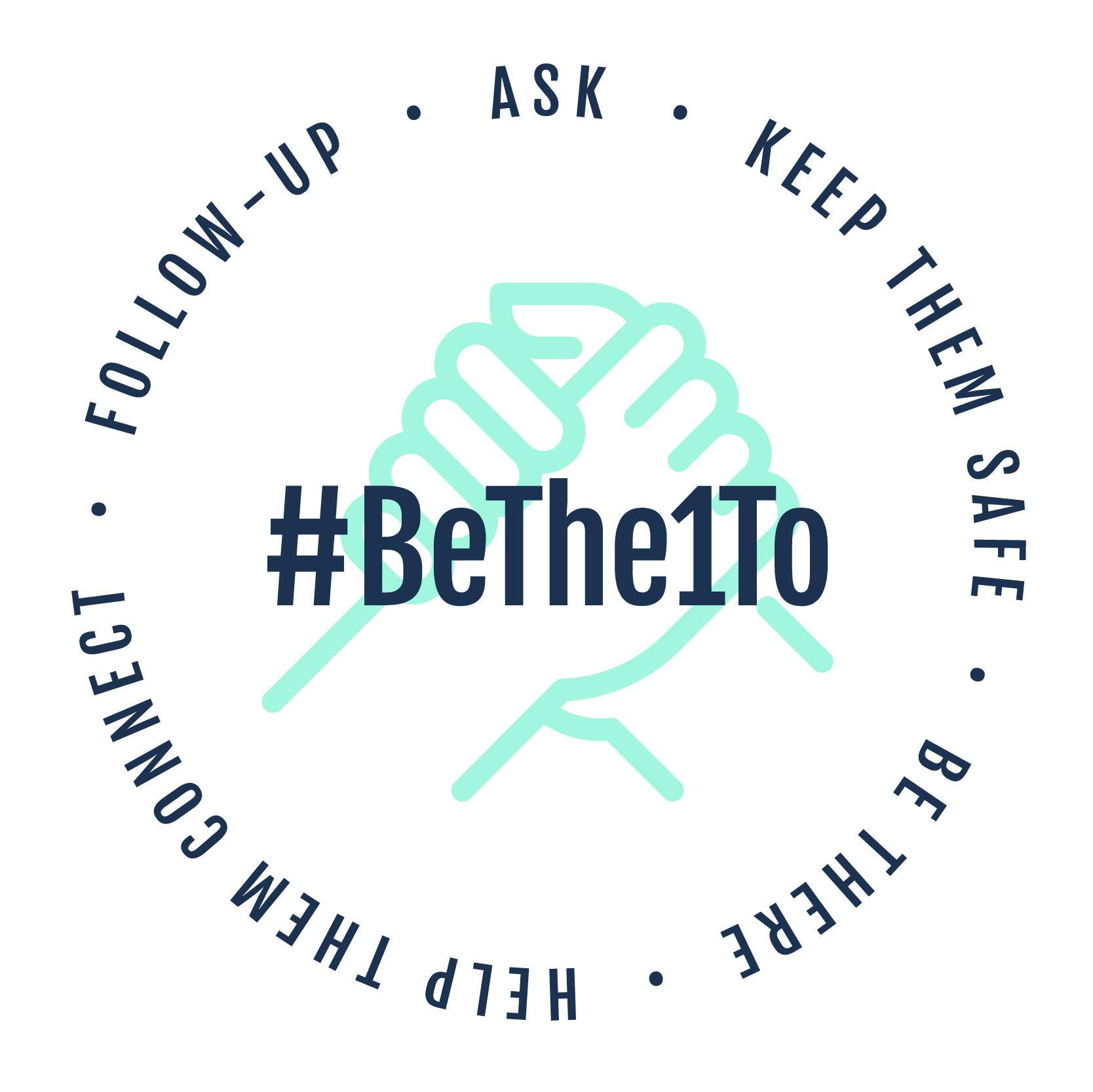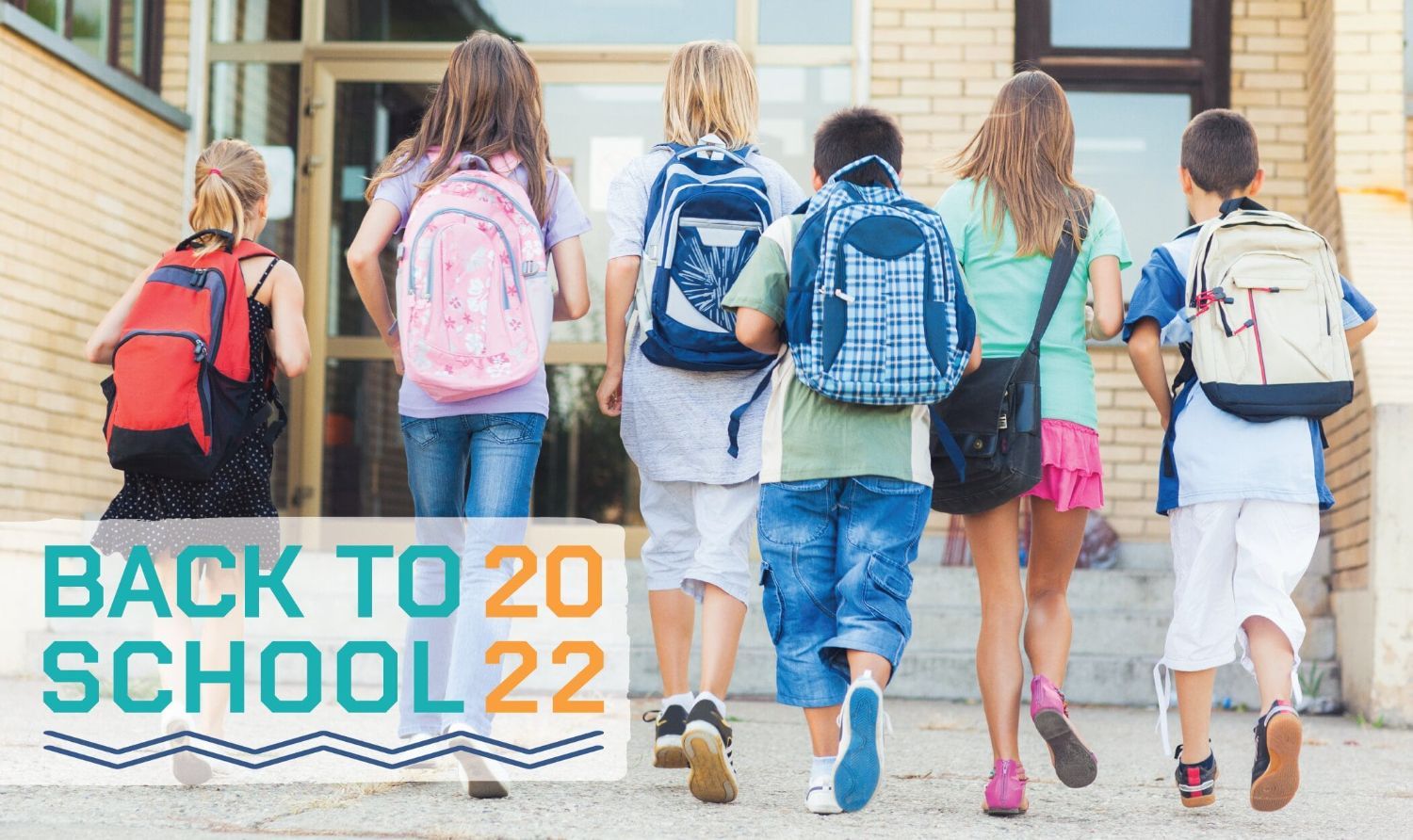North Carolina Public Schools - School Social Work September Update
North Carolina Public Schools sent this bulletin at 09/14/2022 11:38 AM EDT |
 |
September is National Suicide Prevention MonthWe can all help prevent suicide. Every year, the Lifeline and other mental health organizations and individuals across the U.S. and around the world raise awareness of suicide prevention during September, National Suicide Prevention Month. |
 |
#BeThe1To
#BeThe1To is the 988 Suicide & Crisis Lifeline’s message for National Suicide Prevention Month and beyond, which helps spread the word about actions we can all take to prevent suicide. The Lifeline network and its partners are working to change the conversation from suicide to suicide prevention, to actions that can promote healing, help and give hope.
-
988 Is Now Live!
988 offers 24/7 access to trained crisis counselors who can help people experiencing mental health-related distress. That could be:
- Thoughts of suicide
- Mental health or substance use crisis, or
- Any other kind of emotion distress
People can call or text 988 or chat 988lifeline.org for themselves or if they are worried about a loved one who may need crisis support.
988 serves as a universal entry point so that no matter where you live in the United States, you can reach a trained crisis counselor who can help.
Printable PDF handouts in English and Spanish explain the basics about 988.
-
Resource Alert: After a Suicide: A Toolkit for Schools, Second Edition
After a Suicide: A Toolkit for Schools assists schools in implementing a coordinated response to the suicide death of a student. Originally developed in 2011, the second edition includes new information and tools that middle and high schools can use to help the school community cope and reduce suicide risk. The toolkit was developed in collaboration with the American Foundation for Suicide Prevention and in consultation with national experts, including school-based administrators and staff, clinicians, researchers, and crisis response professionals. It is designed primarily for administrators and staff, but can also be useful for parents and communities.
Highlights of the second edition include:
- Updated information on such topics as memorialization, social media, and contagion
- Updated resource lists
- A new tool to help with decision-making about memorials
- New examples of how different communities have addressed specific issues in responding to a suicide death
| New Year, New Goals |  |
As you start to think about what your program/professional goals will be and what data to collect, use this Sample Student & Program Outcomes list to help you organize.
This is also a great list to help you write a data story using previous year's data, creating a narrative to use during advocacy.
Registration Is Open!
 |
This webinar is open to all school social workers that are within their first 3 years of practice in NC public schools.
We will discuss what to know about working in a school setting, the collaborations with SISP and other school staff, evidence based practices and data collection, and becoming indispensable. We will also share and connect resources to practice. Register
|
Resource Rewind
SWSAA created the Who Are School Social Workers quick guide to be used to help explain and navigate our roles. It also includes example interventions at each tier of service delivery.
 |
The NCDPI Specialized Instruction Support Team created these administrative documents to use for role differentiation. These are especially helpful when shared with administrators.
|

DUE NOW!
Year Two PSU Q&A
- Yes, you will be required to report to DPI by September 15th, 2022. The reporting portal is now open, and only one contact per PSU will have access to the reporting portal. You will answer the reporting questions as part of the Healthy Active Children's Report, the same as last year (charters bypass the HAC portions and only complete the SMH report). You will also upload a copy of your SMH plan.
- New charter schools opening this school year will need to report to DPI and submit their plan.
Has anything changed about what we are required to do?
- There are no major changes. You will notice on the reporting page that we have added questions about prior years' compliance. These are based on the 2021-2022 school year.
- Your plans do not have to change. You can upload the same plan as long as it is still what you plan to use. You also can make any adjustment and changes to your plan prior to submitting. You must include your detailed training plan and suicide risk protocol and ensure it is up-to-date.
- You will see the requirements for abuse and neglect resources that are now included in the School Mental Health Policy. These materials must be distributed at the beginning of each school year.
What does the 2-hour subsequent training have to include?
- The 2-hr refresher addresses at least 2 of 6 MH training program areas, and on even-numbered years, 2 hours of sex trafficking and child sex abuse content must be provided.
- The 6-hr initial training (for new employees) must address all 6 areas, regardless of year.
Where do I find all the SMH Policy materials?
- All resources and materials can be found from the NCHealthySchools.org webpage and on the SMH Policy Compliance page.
- Questions can be sent to pachovia.lovett@dpi.nc.gov.
NC Project AWARE/ACTIVATE Resource Goes Global
|
A resource created by Ryan Etheridge, Cleveland Project AWARE/ACTIVATE Director, is going to be used by EdCamp Ukraine. Ryan created Help Now! Bingo and was recently contacted by Trauma Research Institute (TRI) who is coordinating a Ukraine Humanitarian Resiliency Project. TRI has been providing support to Ukrainian educators in preparing for the upcoming unconventional school year and utilized the Help Now! Bingo resource. TRI partners with EdCamp Ukraine and they will be translating this resource for their teachers. |
 |
To learn more about NC Project AWARE/ACTIVATE click here or email Heidi.Austin@dpi.nc.gov.
Data Driven Decision-Making
Student Homelessness: Lessons from the Youth Risk Behavior Survey (YRBS)
The Youth Risk Behavior Survey (YRBS) was first developed by the Centers for Disease Control and Prevention (CDC) in 1990 to assess the health risk behaviors of youth and adults in the United States. SchoolHouse Connection analyzed demographic and risk factor data from the 2019 YRBS in 27 states*, comparing high school students experiencing homelessness and those not experiencing homelessness.
This series shares the striking and heartbreaking results of that analysis, tangible action steps that schools can take, and resources to promote safety and health for students experiencing homelessness.
View additional NC YRBS data and see our data briefs here.
Download MHA’s new 2022 Back-to-School toolkit
 |
Don't forget to download MHA's newest toolkit, “All the Feels.” The free resources in our Back-to-School toolkit look at the issues young people face that impact their mental health and offer tips on how to deal with these issues and the resulting emotions. The toolkit can also help parents and school personnel better understand the issues, such as the effects of social media on youth mental health and how to be supportive. Download |
NC PSU Staff Self-Paced PD Courses
|
For any NC PSU Staff who need CEU credits, DTL now has a database of all current asynchronous NCEES PD opportunities for staff. Find the PD that you need: NC PSU Staff Self-Paced PD Courses. The listing includes free DPI courses published in NCEES and a resource for retired or on-leave staff currently not active in NCEES. Looking for DLCs? Courses are also sorted by credit type.Note: The acquiring of CEUs and contact hours is subject to LEA/Charter approval. Staff should follow local guidelines on pre-approvals, completed course approvals or requests to apply for approval of a different credit type on completed PD. |
 |
Legislative Updates
 |
View the K-12 Education Office of Government and Community Affairs Update from Friday, September 9, 2022. |

New Attendance Works Toolkit
To respond to current realities, Attendance Works has developed a new framework for communicating with families and students about why showing up to school matters. It is embedded in a whole child perspective, and offers a memorable way to explain how being in school supports students’ social, emotional and physical well-being while providing opportunities to learn and achieve.
Simply emphasizing the impact of days missed on learning does not adequately recognize the overwhelming stresses many students and families are faced with during the pandemic. Instead, we recommend highlighting that Showing Up Matters for R.E.A.L. because it offers an opportunity to:
-
The August 3rd webinar, Ensuring a Welcoming, Healthy and Restorative Start to School is now posted. Download a short discussion guide, the recording and slides and watch with a group! Find the materials.
Register today for AAC Webinar #4: What Works to Sustain Engagement and Attendance?, Wednesday, September 28, 2022: 12pm-1:30pm PT / 3pm–4:30pm ET. Sign up here.
Receiving this as a forward? Subscribe to this NCDPI School Social Work newsletter here.
Enter your email, then advance to the next screen that will give you a list of subjects and scroll down to find School Social Work.
The links on this page will bring you to third party websites, owned and operated by independent parties, over which NCDPI has no control. Any link you make to or from these 3rd Party Websites will be at your own risk. Any use of these 3rd Party Websites and any information you provide will be subject to and governed by the terms of the 3rd Party Website, including those relating to confidentiality, data privacy, and security.
Unless otherwise expressly agreed in writing, NCDPI is not in any way associated with the owner or operator of any of the 3rd Party Websites or responsible or liable for the goods and services offered by them or for anything in connection with such 3rd Party Websites. NCDPI does not endorse and makes no warranties, representations, or undertakings relating to the content of any 3rd Party Website.




